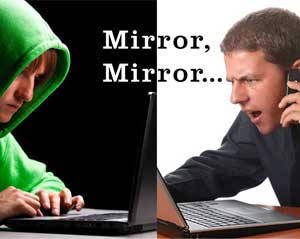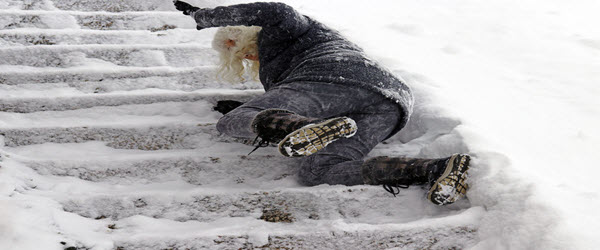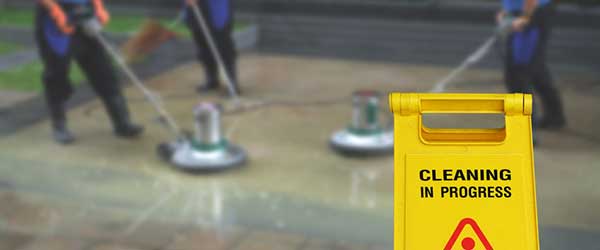They say imitation is the sincerest form of flattery, but what happens when that imitation goes too far?
[EasyDNNGallery|410|Width|300|Height|250|position|left|resizecrop|False|lightbox|False|title|False|description|False|redirection|False|LinkText||]
When you’re a busy business owner, a call from a friend offers a nice break, a chance to put aside the worries of work and just catch up. For Richard Wilson, owner of Brittany Maids in Atlanta, a quick call from a friend was anything but nice.
The Backstory:
This contact in another market told Richard that he had come across a website that looked “exactly like” his website, Brittany-Maids.com. Upon checking out the site, Richard said he was red-faced and outraged.
“They ripped off every single line, picture, format – everything.” The sites weren’t identical, but bore very strong similarities. “They’re not twins…but they’re certainly brothers,” Richard said.
The first thing he did was call his web designer to ask if the design and content were copyrighted. His web designer said the site was copyrighted, so Richard asked her to provide the documentation. She didn’t have any.
Cease and Desist
Richard’s next phone call was to an attorney. He provided the lawyer with all of the information he could gather, and they used those details and other information compiled from public records to write a Cease and Desist letter to the owner of the other website.
In a follow up phone call with the owner of the other website, the other business owner said she had no idea what had happened. She said she hired a teenager from abroad to design the site for her.
“Well, he ripped everything off – lock, stock and barrel,” Richard responded.
A Draining Experience
After the letter and the phone call, Richard said he set about business and life as usual, pulling up the site again several weeks later to see it had changed slightly, but was still largely the same.
Six months after he first discovered the alleged copycat site, the site is still accessible. Richard’s patience is wearing thin. The experience has been exhausting.
“If anybody’s ever been in any kind of legal entanglement, it’s a real pain. It’s an emotional drain. It takes time away from the company. It’s a financial drain.”
As for Richard’s copyright registration, his web designer has filed the appropriate paperwork. “The process is underway with the U.S. Copyright Office and we’ll receive confirmation of the copyright when they’re done.”
In the meantime, Richard has followed up with a very terse letter to the owner of the other website, warning her about the consequences she could face if she doesn’t remove the site.
Barnwell Whaley Patterson & Helms, LLC
The biggest pitfall that people run into with the whole copyright statute: if you hire someone to do creative work, then you need an agreement in writing, signed by them, that says that you, and not they, own the copyrights. Make sure that you own the content. The business owner should make sure that whomever they hire to do creative work has assigned the copyrights to the business owner.
Secondly, it would be preferable to register the copyright right away before anybody infringes. Odds are, nobody’s going to infringe it, so you spend a little bit of money to register the copyright, and it may never be of any use to you, but it’s good to have.
If you get a registration certificate from the Copyright Office, if nothing else, it’s good to send to somebody who has infringed your copyright because you can say, “Look, here’s a certificate from the Federal government.” A lot of times people will see that and simply back off. They may not always.
If somebody’s going to do that, they’re going to do that. There are always going to be people who are unscrupulous; that’s just the way it is. If you get to that point, your only recourse is to bring suit against them in Federal court…which is expensive.
One of the reasons to register your copyright is in case you bring suit in Federal court for infringement. If you prevail and prove your case, the court is required to award you a certain amount of money. It can be substantial, plus your attorneys’ fees. But you have to register the copyright BEFORE the act of infringement.
The test [in a copyright infringement case] is substantial similarity, and it’s kind of subjective. When I’ve had issues that are artistic in nature that deal with copyright, I hire an expert witness who can point out similarities. You need somebody who really has a trained eye for what’s similar and what’s not similar. It’s just a matter of proof and whether a jury or a judge believes what your expert is saying.
Then there’s occasionally even a trademark infringement because the business owner can argue that, “Well, this is my trade style.” In some cases, you’re going to get people who’ll use maybe a logo or something like that, that’s of a particular style, and if somebody does something similar to that, then there may even be trademark issues involved.
Web Development / Security Expert
Like the attorney, our web development and security expert says that little can be done to prevent website theft; he says no one web development platform is more secure than others.
Absolutely nothing can be done. Not anymore than you could do to stop someone from copying a book. The best you could really do is to be vigilant to see if somebody is doing it. And hopefully, people this will have enough integrity to take it down if they’re confronted with it.
It can happen on any platform. If there was real functionality – if there was a client portal where people could log in and do this or that, or if it was a site that sold things so it had to have an inventory database backend and all of that, this would be much harder to copy. But when it’s a site that’s mainly presentation, it really doesn’t matter what platform it’s in.
If a person is building a new site you, you should be asking, “Where are you getting the content for this? Where are you getting the pictures? Am I supplying the pictures if they’re originals? If I’m not supplying them, where are you getting them so that they’re legal? Is my design from you going to be custom, not used by anybody else?”
In the case of this alleged copied website, they went to bargain price, low-bid work, and got what they paid for. Those designers find an example, and they just copy it because they don’t have the time or maybe not even the skills to come up with a real product. So they lift somebody else’s, lock, stock and barrel.
Set up Google alerts to look for key words that are in your site that you know only you phrased them that way…and monitor those. You’re not going to be able to stop it. The only thing you will be able to do is take action if you see it.
The marketing implications of website theft can be very damaging for small business owners. A search engine marketing expert we spoke to said that search engines use technology to penalize websites containing duplicate content.
Google ranks websites based on a mathematical algorithm that gives websites a quality score. They scan all of the websites on the Internet and they do a comparative analysis. If they scan two websites and they determine that the content is duplicated, they will apply a penalty to that site. They could actually do many different things. One of them is remove the site from its index completely, or two, they might push them so far down (the results) that they’ll never be found. Bing and Yahoo! have similar algorithms that do the same. As far as action steps that can be taken, there’s the DMCA, which is the Digital Millennium Copyright Act. You can submit to Google a complaint based on the DMCA that says, “This is my work. It’s copyrighted,” and Google may actually take it down. They’ll remove it from their index, and at the bottom of the search results you will see a note saying that some of the results have violated the DMCA and have been removed.
The information contained in our Deep Dive article has been supplied by the participants whose names are mentioned. The editors at Cleaning Business Today have collected and reported the statements of the participants, but have not attempted to verify the accuracy of the information supplied. Accordingly, Cleaning Business Today does not make any representation, warranty or undertaking expressed or implied with respect to the information contained in this article and no responsibility is accepted by Cleaning Business Today as to the accuracy or completeness of that information.






